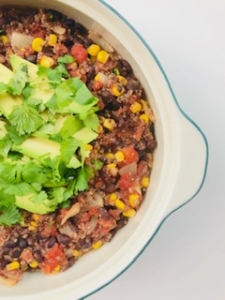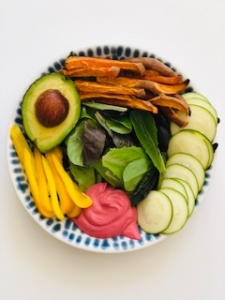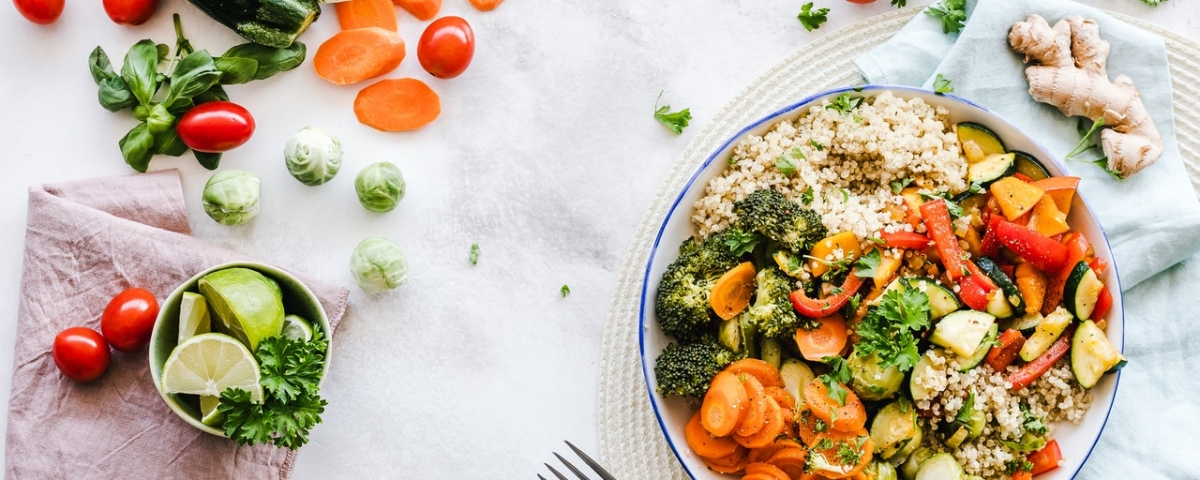blog
Whole Food Diet
Eating a whole food diet is probably the single most important thing one can do to improve their health and overall quality of life. It’s so simple yet so many people eat the SAD diet (Standard American Diet) and they wonder why they aren’t experiencing optimal health. We have gotten so busy and task-oriented in our modern lives that we have forgotten a lot of tried and true principles that have always served us well in the past. Instead, people are relying on convenience foods such as processed packaged foods and fast foods to feed themselves. Then when things aren’t functioning right physiologically as a result, they turn to their standard western medicine doctor who prescribes the medicine that doesn’t treat the root cause of their issues and likely will lead to additional uncomfortable symptoms down the road.
So why don’t we just eliminate all of a headache, weight gain, unnecessary financial costs, etc.… and adopt a whole food plant-based diet? Anytime I mention this to someone who hasn’t heard of the concept before I’m met with the same concerns. People think eating this way is time-consuming, expensive, unattainable and unenjoyable. Well, I’m here to tell you that these are all myths. Let’s go through each one of these so-called roadblocks and examine why we really can’t afford to eat this way.

First off, buying food in its whole form is the cheapest way to purchase food. Think about how much an onion costs, a potato costs, an apple cost. These foods are less than a dollar in most cases and you can easily shop around in your neighborhood to see which store or market offers the most competitive prices. Shopping from bulk bins when it comes to your nuts, seeds, and grains will also save you money and farmers markets or fruit and vegetable stands are great places to save on produce. You might even find a co-op or a sustainable farm to table produce delivery organization, you can take advantage of where you buy a membership once a year and are guaranteed lower prices for your deliveries in return. The other huge point I strive to drive home with the cost issue with people is the money, they will be saving down the road not having to spend time, and energy at doctors’ offices due to their declining health as a result of not eating a proper nutrient-rich diet. This is not an opinion of mine, it’s a fact that disease is bound to happen to a person if they deviate from their intended diet. We can’t even attempt to quantify the income lost due to someone not performing at their full potential because they lack energy or are feeling sick or pain as a result of consuming too much junk food.
When looking at the unenjoyable myth people use as an excuse not to eat whole foods, this will be for true for them in the beginning. Our taste buds change and adapt to the foods we are currently and consistently eating. In addition, processed food companies routinely add in ingredients that are known to trigger dopamine responses in people who eat them making the foods contain addictive qualities. This is why people can’t just have one serving of potato chips, yet they can have one serving of an apple. Another important thing to note here is that a person may feel a lot of pleasure while they’re eating the potato chips, however, they most certainly don’t feel that way once they’ve eaten the whole bag. In fact, they will feel worse and will likely suffer from poor digestion and lackluster energy as well. The good news here is that just like a person’s taste buds can change to desire those chips, they can just as easily change to desire that apple. Unlike in the chip scenario, when a person is eating these whole food plant-based foods like the apple, they will feel energized, satisfied and focused once they’re done eating and as a result, will start to crave more of these whole foods for those feelings alone in addition to their taste buds craving them.
The last most common myth I hear pertains to the belief that eating a diet comprised of whole foods is too hard and therefore unattainable. This one is really fun to actually show people because preparing whole plant foods is actually really quick for the most part. I very rarely prepare meals that take more than 30 minutes, and most are in fact under 20 minutes. Making a smoothie only takes you chopping up a few fruits and veggies and the time it takes for your blender to work; preparing a salad only takes you chopping up some vegetables and tossing them into a bowl; making a stir fry only requires sautéing a meal for 15 minutes and if you want rice with it you can use a rice cooker and relax while it does all of the work; roasting vegetables only take the time for you to chop what you’re roasting then you can do other tasks while you’re oven is on; making your own plant milk only takes the time you put the nuts/seeds into some water the night before and the time it takes for your blender to blend them. These are just a few simple examples. The important thing to do is to just start. Eventually, these things will become a habit and you will do them without putting in much thought or effort. Now when I use up the last of my almond milk, I know to throw some almonds in a container to start soaking the next batch and I just do it because it is now a habit.

Now that we’ve addressed the most common roadblocks, let’s look at why we really can’t afford to eat this way. That old saying, “you are what you eat,” is really true. The food we eat will form our new cells and in turn our new tissues including our skin, hair, nails, bones, organs, blood and any other physical body part I didn’t list. That’s what food is, a new life that essentially becomes us. It always amazes me when I first mention this to a new client and they look amazed like they have never heard of this concept before. We have to understand that the food we eat isn’t just passing through our bodies for the fun of it, the human body is constantly under repair and regeneration. When you understand this, it becomes much easier to turn away a hot dog or candy bar.
The reason whole plant foods are the best choice for forming your new tissues is that they contain both the proper micro and macronutrients your body needs to create healthy cells and provide you with energy. Plant foods such as vegetables, grains, nuts, seeds, and fruits contain fat, fiber, protein, carbohydrates, vitamins, minerals and amino acids. These are all components needed for an optimal diet and nature has packaged each one of the above whole food categories with them. So, it’s no wonder why communities who eat this way see significantly less disease than communities who eat meat heavy or processed food heavy diets. And this is the main reason why we can’t afford to eat this way, the reason being the desire to avoid disease. The World Health Organization has already declared that 1 in 2 men will now have cancer in their lifetime and 1 in 3 women will. This number is expected to double by the year 2050 meaning that essentially everyone who does not make lifestyle changes such as adopting a whole food plant-based diet will have cancer. To me, that’s reason enough.
About the Author: Edith Agoston is a freelance writer and Integrative Nutrition Health Coach in Seattle, WA. She writes about all things health and wellness including nutrition, fitness, and spirituality on her main platform edithagoston.com. Edith works with her clients to implement behavioral lifestyle changes to improve their overall well being.


